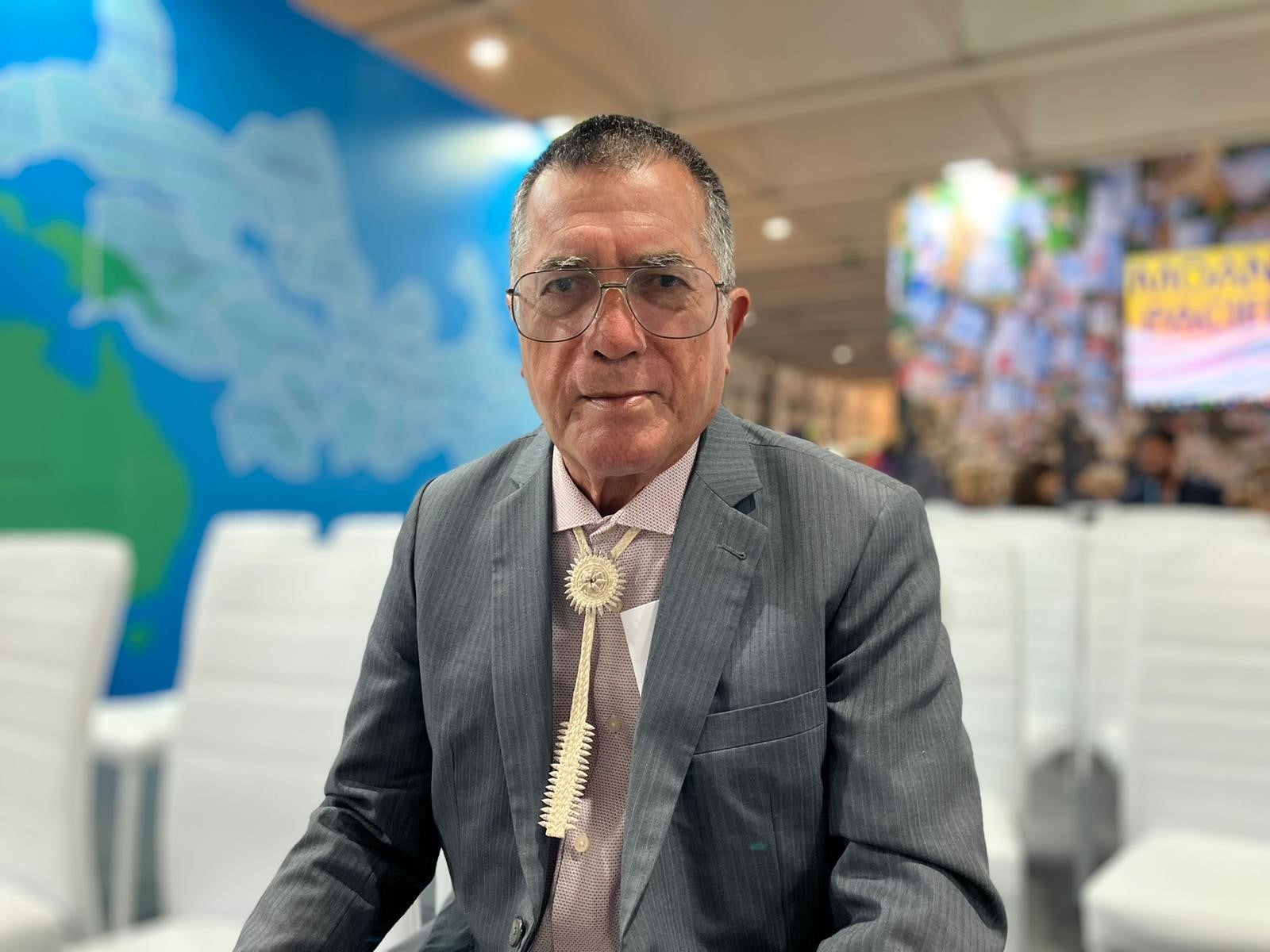Disappearing nation urges billionaires to stop funding trips to Mars and save sinking island
Exclusive: ‘All we’re asking is give us the money to make sure the Marshall Islands can continue ... to exist in the world,’ John Silk says
While billionaires spend eye-watering sums to go to Mars, the Marshall Islands can’t secure international funding to save the country from a climate disaster, its minister of natural resources has warned.
“There’s these billionaires that are building rocket ships to go to Mars... All we’re asking is give us the money to make sure the Marshall Islands can continue ... to exist in the world,” John Silk told The Independent at the Cop27 summit in Egypt. “We’re talking about a nation that is on the brink of disappearing.”
Mr Silk said his country became an independent nation in 1979 and since then has faced the prospect that it may not exist in the decades to come because of rising sea levels. “Where do you go?” he asked.
The World Bank has described the threat posed by climate change to the Marshall Islands as “existential”, and said that if the existing rate of sea-level rise continues, the country will face costly choices to protect essential infrastructure such as schools and hospitals.
Rising seas are projected to endanger 40 per cent of buildings in the capital, with 96 per cent of the city at risk of frequent flooding induced by climate change, according to the World Bank.
Mr Silk said that as well as the island itself, its culture and heritage are at stake. That includes the Marshall Islanders’ skill at navigating the ocean, their ability to make canoes out of the tallest trees (which are now not growing so high), and the stories passed down through generations that are immortalised in the island’s rocks but are at risk of disappearing into the sea.
At some point in the future, the government may have to decide which islands to save and which to abandon, he said. “People are now migrating from island to island because of rising sea levels,” he added.
Mr Silk said his country needs funds to build sea walls, to raise some of the islands up, and to build better structures to protect the country from the rising seas and from cyclones.
“We can’t do it without your help,” he said, pointing to the 2009 pledge by rich nations to pay $100bn every year by 2020 to help developing countries to cope with the effects of a rapidly heating planet. More than a decade later, that pledge has not been kept.
“We haven’t seen it; where is it?” said Mr Silk.

As for the contentious issue of whether rich nations should compensate vulnerable countries for the irreparable loss and damage they have experienced as a result of rising global temperatures fuelled primarily by developed nations burning fossil fuels, Mr Silk said there should have been a fund “yesterday”.
The Independent spoke to the minister on the sidelines of an event in which leaders and activists from Pacific Island states shared their experiences of climate change. The message from those leaders was clear: at Cop27, countries must pay loss and damage reparations now, or at least establish a programme that will set up a fund in the next two years.
“We came out of Glasgow disappointed,” said Seve Paeniu, Tuvalu’s minister of finance. “We are at the front line of the effect of climate change and sea-level rise and we need the money now.”
The leaders agreed that the negotiations have been going on for too long, and Mr Paeniu said some countries are still resisting calls to pay compensation.
“They’re really shying away from any mention of a special fund,” he said.
The minister, who was watching the panel event at the Moana Blue Pacific Pavilion, said it felt like a long time since the Kyoto protocol in 1992 kicked off the Cop process.
“There’s another Cop next year and another Cop following it, and these will continue for the rest of our lives,” he told The Independent. “At some point in time, maybe the Marshall Islands won’t be there.”
He invited the United Nations to hold a Cop in the Marshall Islands – if the islands still exist.
Mr Silk also spoke of his grandson, who had recently visited him from Hawaii. He said that one day, as they were sitting on the porch at high tide, the ocean came up almost to the front door. “He said, ‘Grandad, why don’t we move?’” said Mr Silk. “I said ‘Move where? We have no higher ground.’”
He added: “There is no more time to waste, we have to move, and this Cop has to come up with something really tangible for all of us to take back home and tell our grandkids that there’s a future here.”




Join our commenting forum
Join thought-provoking conversations, follow other Independent readers and see their replies
Comments